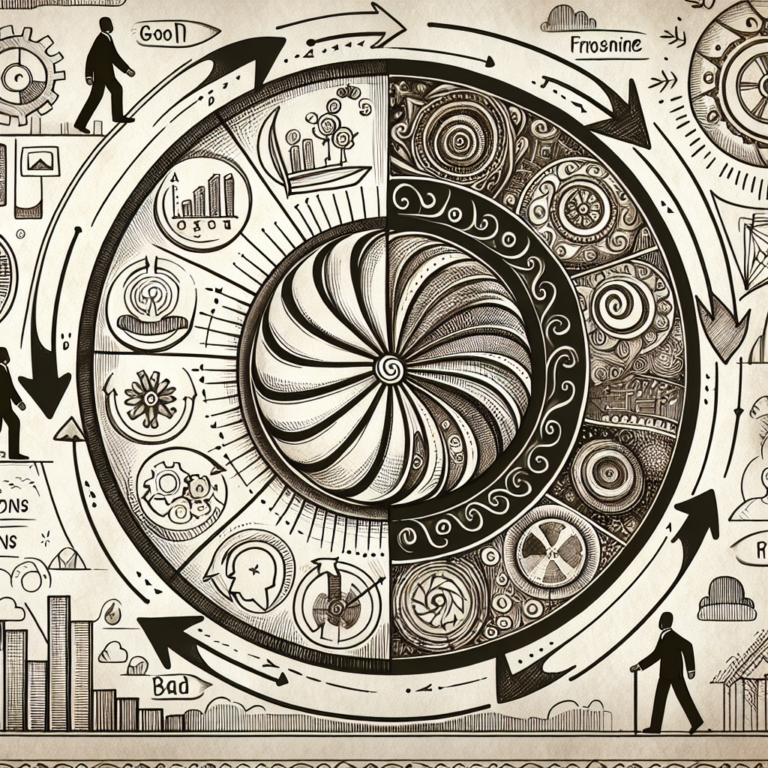Karma is a concept that has floated through the collective consciousness of humanity for millennia, drawing from various philosophical and religious traditions. Primarily associated with Hinduism and Buddhism, karma refers to the broad principle of cause and effect, where every action has corresponding consequences. But what does it really mean? How does it affect our lives, our choices, and our understandings of justice and morality? In this article, we will delve deeply into the idea of karma: its definition, the historical context, various interpretations, and its effects on our lives, communities, and the universe at large.
The Definition of Karma
At its core, karma is often boiled down to the phrase “what goes around comes around.” Unlike simplistic interpretations that suggest a direct punishment or reward, karma is more nuanced, encompassing the idea that every action (thoughts, words, deeds) has ramifications. These consequences may not always be immediate or visible but play out in various ways, influencing not only the individual’s life but also the lives of others.
- Action: Karma begins with action. It’s not merely about physical actions but includes mental intentions and verbal expressions.
- Cause and Effect: Every action serves as a cause leading to desired or undesired effects.
- Balance: Karma is often viewed as a system of balancing energies. It strives to create equilibrium in the universe.
The Historical Context of Karma
The origin of the term “karma” can be traced back to ancient Indian texts, particularly the Vedas, dating back as far as 1500 BCE. In these texts, karma is described as a natural law governing moral decisions and guiding the cycle of birth, death, and rebirth, known as samsara. In Hinduism, karma has been tied to dharma (moral duty) and moksha (liberation or enlightenment), suggesting that one’s actions directly affect their journey toward enlightenment.
In Buddhism, the concept of karma is similarly expansive, evolving into a key component of the Four Noble Truths, which address the nature of suffering and existence. Here, karma is seen as a determinant of one’s current and future states of being, offering a profound exploration of moral responsibility and ethical living.
Karma in Different Cultures and Beliefs
While karma is often associated with eastern religions, variations of the idea can be found in many cultures and belief systems worldwide.
1. Eastern Traditions
In addition to Hinduism and Buddhism, Jainism also emphasizes karma, alongside its unique cosmology. Jain teachings suggest that karma is a form of matter that attaches to the soul, influencing its journey through cycles of life.
2. Western Perspectives
In Western philosophy, although the concept is not labeled as karma, many ideas echo similar themes of cause and effect—such as the biblical principle of sowing and reaping. Additionally, contemporary discussions about personal responsibility, ethics, and the impact of choices on mental health reflect karmic philosophy’s influence.
3. New Age Interpretations
Modern spiritual movements often adopt karma in more abstract forms, intertwining it with concepts like the Law of Attraction, suggesting that positive or negative energies drawn into the universe shape individual experiences.
The Mechanisms of Karma: How Karma Works
Understanding how karma operates involves examining the layers involved in human actions and their repercussions. This model can be segmented into different aspects:
1. Intent
Intent is crucial in determining the nature of karma. Simply acting without mindful thought does not free us from the ramifications. It is the intention behind the action that influences the karmic outcome. Positive intents, characterized by kindness and compassion, cultivate positive karma.
2. Action
Every action—whether from thought, word, or deed—contributes to karma. The effects of actions can manifest in immediate or delayed consequences. Understanding that we are constantly creating karma through our daily interactions can inspire people to act with greater awareness.
3. Reflection
Taking time to reflect on one’s actions can unveil patterns of behavior and their results. It can prompt personal growth and rectification of wrongdoings, aligning thought processes with mindful living.
4. Relationships
Our interactions with others significantly contribute to karmic exchanges. Through relationships, whether positive or negative, we enact karma, often experiencing its effects back through the connections we foster.
The Role of Karma in Personal Development
Considering karma in a personal development context allows individuals to embrace the aspirational aspects of the concept. Here are a few ways karma influences growth:
1. Responsibility
Realizing that our actions affect others encourages personal accountability. With this awareness, one can make conscious choices aligned with ethical and moral values, shaping their environment for the better.
2. Empathy
The understanding that others are experiencing their karma enhances empathy. When we see others’ hardships, we can recognize that these challenges may reflect their actions and circumstances in her past, fostering compassion rather than judgment.
3. Growth Mindset
Belief in karma can promote a mindset oriented toward personal growth and change. Understanding that past actions can inform future choices encourages individuals to engage in self-improvement endeavors, seeking redemption when necessary.
4. Forgiveness
Engaging with the concept of karma can aid in forgiveness. Recognizing that everyone is responsible for their journey fosters a more forgiving stance, understanding that we are all flawed beings navigating the laws of cause and effect.
Karma in Everyday Life
In our daily lives, we often encounter situations that make us reflect on karmic principles. Examples include:
1. Kindness and Generosity
Acts of kindness often lead to pleasant surprises or support from the universe, reinforcing the idea that good deeds create positive energy.
2. Words and Communication
How we communicate can have far-reaching effects; spoken words can uplift or destroy. Understanding this encourages mindful exchanges and conflict resolution.
3. Environmental Actions
Our actions toward the environment exemplify karma. Caring for the planet may yield positive outcomes, while neglect can lead to detrimental consequences for ourselves and future generations.
The Scientific Perspective on Karma
From a scientific standpoint, karma mirrors many principles of psychology and sociology. While karma’s metaphysical aspects remain unproven, the psychological impacts of our actions and their direct influence on our well-being are undeniable.
1. Behavioral Science
Research shows that positive behaviors can lead to improved mental health, creating a cyclical benefit to individual well-being and interpersonal relationships. Just as positive karma is believed to foster personal growth, engaging in charitable and constructive behavior enhances life satisfaction.
2. Social Dynamics
Understanding that our choices contribute to the larger social fabric highlights the interdependence of human relationships. Positive interactions compel reciprocation, embodying karmic reciprocity in social constructs.
Conclusion
In exploring the concept of karma, we unveil a complex and rich narrative about the unseen forces guiding human action and experience. While it has deep roots in spiritual traditions, its principles resonate with universal truths about cause and effect. Understanding karma can inspire personal growth, foster empathy, and encourage responsibility. It transcends its spiritual origins and finds relevance in personal development, ethics, and societal behaviors. Ultimately, karma teaches us that we are interconnected, that our actions matter, and that we are eternally influencing the tapestry of our existence through the choices we make every day.
FAQs
1. Is karma always about punishment or reward?
Karma is not strictly about punishment or reward; rather, it reflects the consequences of our actions. It encompasses both positive and negative implications and encourages individuals to act mindfully.
2. Can one ‘clear’ bad karma?
While one cannot erase past actions, one can engage in positive deeds and self-reflection to cultivate good karma moving forward. This includes acts of kindness, forgiveness, and personal growth.
3. How does karma work in everyday situations?
Karma manifests in everyday life through the outcomes of our decisions, words, and actions, shaping our experiences and interactions with others.
4. Does karma have an impact on mental health?
Yes, a conscious engagement with karma can lead to improved mental health as individuals adopt positive behaviors, reflect on their actions, and foster empathy and forgiveness.
5. Is belief in karma necessary to experience its effects?
Whether or not one believes in karma, the principle of cause and effect remains prevalent. Actions lead to consequences regardless of personal beliefs, emphasizing the importance of mindfulness in daily life.
https://open.ai/86aee03ac783128db942045d19628a71 , Of course! Please provide me with the details or topic you’d like the prompt to be about, and I’ll be happy to help you with it!, #Karma #Explained #Unseen #Forces #Effect, #Karma #Explained #Unseen #Forces #Effect, 1734025677, karma-explained-the-unseen-forces-of-cause-and-effect





